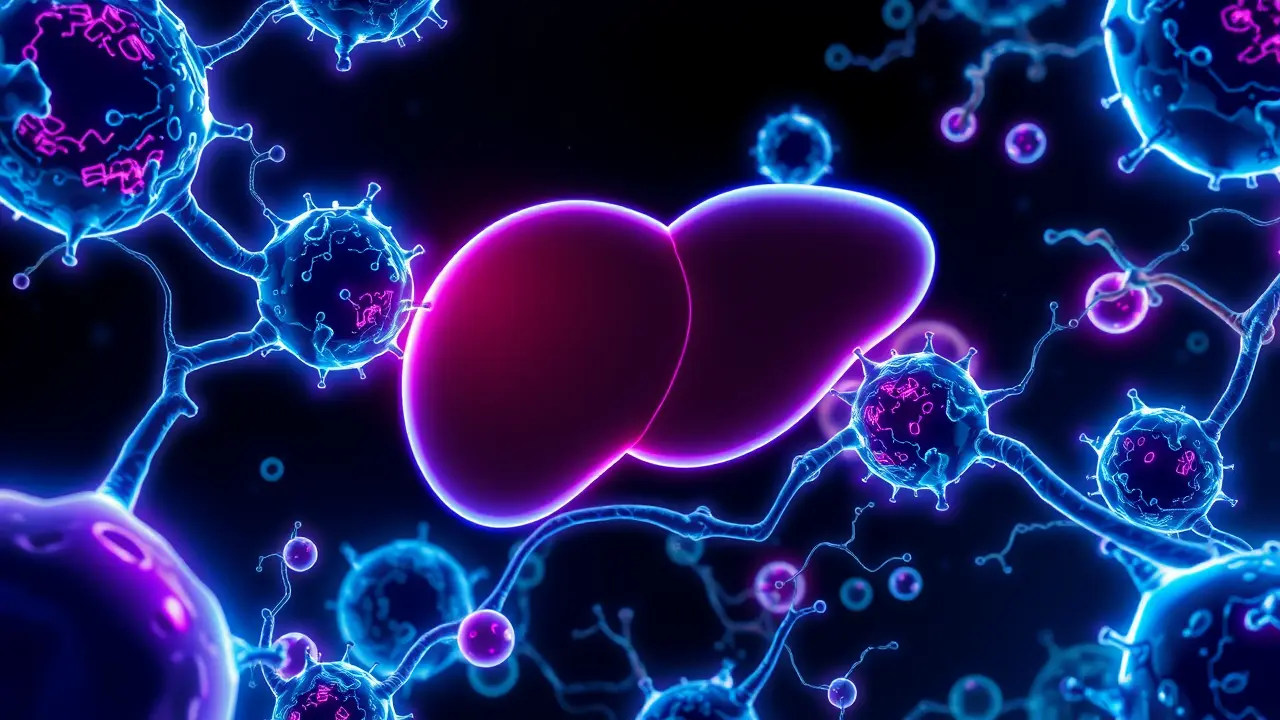This common liver supplement could boost cancer treatment success
In a discovery that elegantly bridges the ancient pathways of human metabolism with the cutting-edge frontier of immuno-oncology, scientists at the Salk Institute have unearthed a paradoxical mechanism within the liver's own ecosystem that actively sabotages modern cancer therapies. The culprits, it turns out, are bile acids—those fundamental compounds produced by the liver to emulsify and digest fats, which have been part of our physiological landscape for eons.The research team, delving into the immunosuppressive tumor microenvironment of liver cancer, identified specific bile acids that function as molecular saboteurs, directly impairing the function of cytotoxic T cells, the very soldiers of our immune system that immunotherapies are designed to unleash. This biochemical betrayal effectively creates a firewall around hepatic tumors, rendering powerful checkpoint inhibitors less effective and allowing malignancies to persist.The brilliance of the finding lies not just in the identification of the problem but in the proposed solution: ursodeoxycholic acid (UDCA), a well-characterized, off-patent bile acid already widely prescribed for conditions like primary biliary cholangitis. In a series of compelling pre-clinical models, supplementing with UDCA did not merely nudge the immune system; it effectively reversed the immunosuppressive blockade, re-arming the T cells and leading to significant control of tumor growth in mice.This is not just another incremental lab finding; it’s a paradigm shift that leverages existing pharmacology to overcome a fundamental biological defense mechanism. The translational potential is staggering.Because UDCA has a long-established safety profile and is already approved for human use, the path to clinical trials is dramatically shortened, potentially bypassing years of toxicological studies. We could be looking at a near-future where a simple, inexpensive oral supplement becomes a standard adjuvant to immunotherapy regimens for liver cancer, one of the most common and deadly malignancies worldwide.This approach exemplifies the next wave of oncological intervention: not developing ever-more-expensive designer drugs in isolation, but understanding and reprogramming the host's native biology to make existing, powerful treatments work better. It’s a strategy that resonates with the principles of synthetic biology—hacking the body's own code for therapeutic gain.The implications ripple beyond hepatology. If bile acids can exert such potent immunomodulatory effects in the liver, what other metabolic byproducts are influencing immune responses in cancers of the colon, pancreas, or elsewhere? This research opens a new chapter in the cancer playbook, moving the battlefield from the genome to the metabolome, and suggesting that some of our most potent weapons against disease may have been hiding in plain sight, in the very chemistry that keeps us alive.
It’s quiet here...Start the conversation by leaving the first comment.
